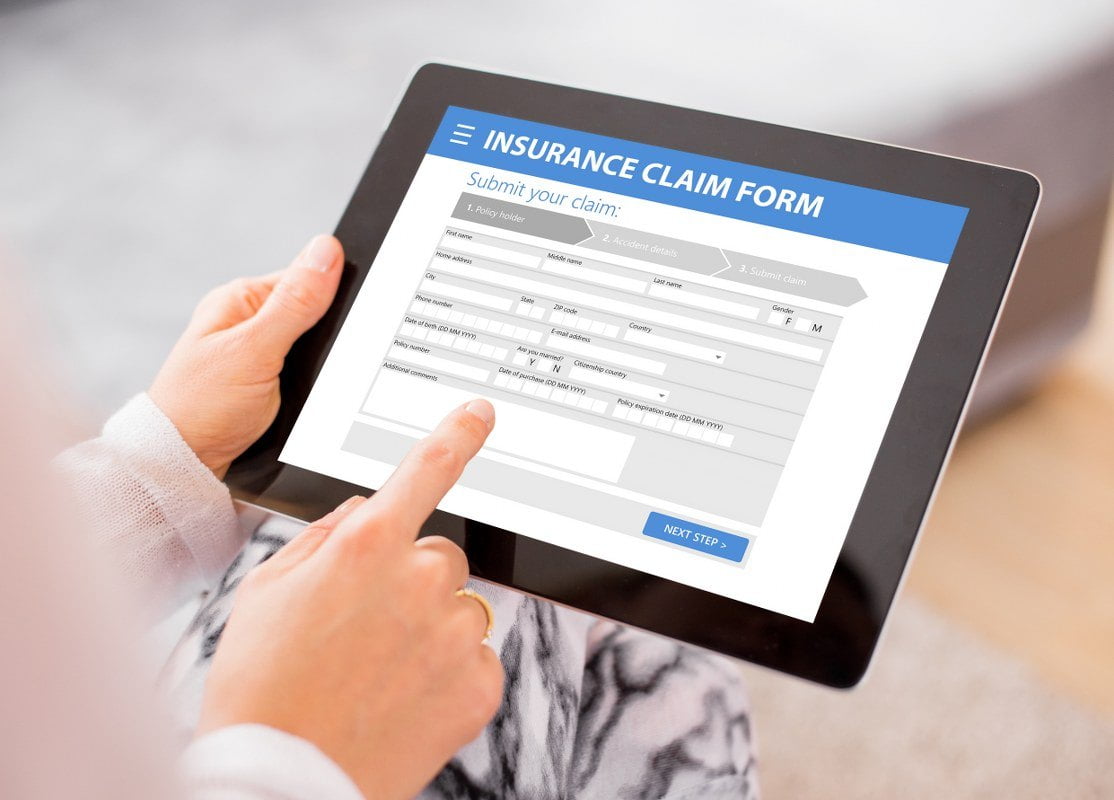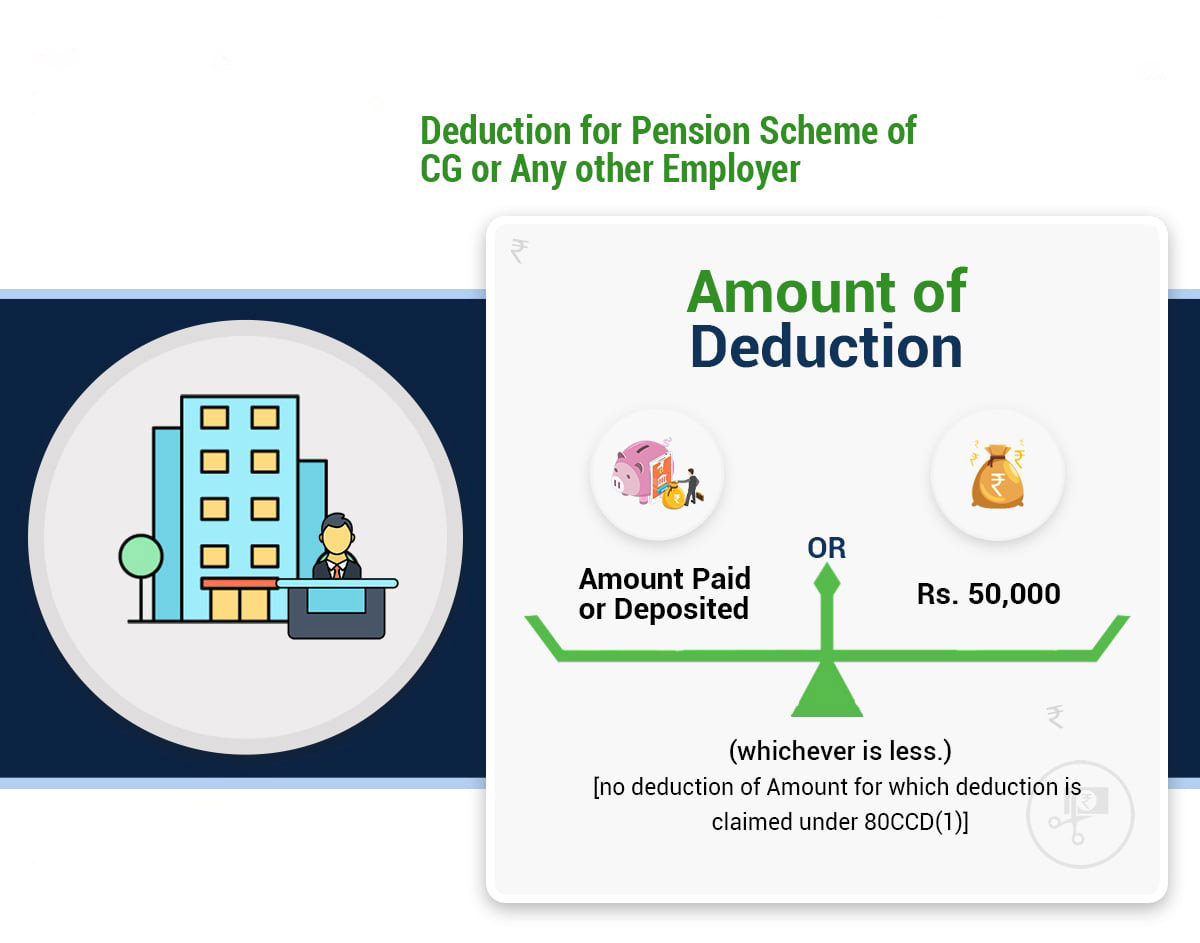

Finance
What To Tell Insurance Adjuster After Accident
Modified: December 30, 2023
Learn what you should say to your insurance adjuster after an accident to protect your finances and ensure a fair settlement.
(Many of the links in this article redirect to a specific reviewed product. Your purchase of these products through affiliate links helps to generate commission for LiveWell, at no extra cost. Learn more)
Table of Contents
- Introduction
- Immediate Steps to Take After an Accident
- Providing Basic Information to the Insurance Adjuster
- Describing the Accident and Damage
- Providing a Statement about Injury and Medical Treatment
- Discussing Liability and Fault
- Providing Documentation and Evidence
- Handling Compensation and Settlement Discussions
- Dealing with Insurance Adjuster Tactics
- Conclusion
Introduction
Being involved in a car accident can be a stressful and overwhelming experience. In the aftermath of the incident, one of the key individuals you’ll likely have to interact with is the insurance adjuster. The insurance adjuster plays a crucial role in assessing the damages, determining fault, and processing your claim.
Knowing how to effectively communicate with the insurance adjuster is essential in ensuring a smooth claims process and maximizing your chances of receiving fair compensation. By understanding what to say and how to navigate the conversation, you can protect your rights and strengthen your position.
It’s important to remember that the insurance adjuster works for the insurance company and their primary goal is to minimize the amount of money the insurer has to pay out. This means that they may employ various tactics to devalue your claim or shift blame onto you. By being well-informed, confident, and prepared, you can navigate these challenges and advocate for yourself.
In this article, we will provide you with a comprehensive guide on what to tell the insurance adjuster after an accident. We will outline the immediate steps you should take, the information you should provide, and how to handle various aspects of the claims process.
Remember, while this article aims to provide you with valuable information, it’s always recommended to seek legal advice from a personal injury attorney. They can offer expert guidance tailored to your specific situation and ensure that you are taking the necessary steps to protect your interests.
Immediate Steps to Take After an Accident
After a car accident, it’s crucial to take immediate steps to ensure your safety and protect your legal rights. Here are the key actions to consider:
- Check for injuries: Before anything else, check yourself and any passengers for injuries. If injuries are severe, call emergency services right away.
- Move to a safe location: If the accident is minor and it’s safe to do so, move your vehicle to the side of the road to prevent further collisions.
- Call the police: In most cases, it’s wise to involve the police, even if the accident seems minor. A police report can provide crucial documentation for your insurance claim.
- Exchange information: Exchange contact and insurance information with the other involved parties. Make sure to get their names, phone numbers, addresses, insurance company names, policy numbers, and license plate numbers.
- Document the scene: Take photos of the accident scene, including any vehicle damage, skid marks, road signs, and traffic conditions. This visual evidence can be invaluable during the claims process.
- Get witness statements: If there are any witnesses, politely ask for their contact information and if they are willing to provide a statement about what they witnessed.
- Notify your insurance company: Report the accident to your insurance company as soon as possible. Provide them with accurate and detailed information about what happened.
By following these immediate steps, you can lay the foundation for a strong insurance claim. Remember to remain calm and collected throughout the process, as this can greatly impact how you communicate with the insurance adjuster and the outcome of your claim.
Providing Basic Information to the Insurance Adjuster
When communicating with the insurance adjuster, it’s important to provide them with accurate and essential information. Here’s the basic information you should be prepared to share:
- Your contact information: Provide your full name, phone number, email address, and current mailing address. This will allow the insurance adjuster to reach you and send any necessary correspondence.
- Date, time, and location of the accident: Clearly state when and where the accident occurred. Be sure to include the street names or landmarks to help the adjuster locate the scene of the accident.
- Police report details: If the police were called to the scene, provide the insurance adjuster with the report number and the contact information of the responding officer.
- Policy information: Give the insurance adjuster your policy number and the name of your insurance company. This allows them to access the details of your coverage and start the claim process.
It’s important to provide this basic information accurately and concisely. Avoid offering unnecessary additional details that could complicate the conversation or be used against you in any way.
Remember that the adjuster’s goal is to gather information related to the accident and assess the validity of your claim. They may ask additional questions about the accident, damages, injuries, and any previous incidents. It’s crucial to answer their questions honestly and directly, without speculating or embellishing any details.
If you don’t know the answer to a specific question, it’s acceptable to say that you’re unsure or don’t have that information readily available. It’s better to be honest than to provide inaccurate or misleading information.
By providing the necessary basic information and maintaining open and honest communication, you can establish a productive relationship with the insurance adjuster and facilitate the claims process.
Describing the Accident and Damage
When speaking with the insurance adjuster, you will need to provide a detailed description of the accident and the resulting damage to your vehicle. Here’s how to effectively communicate this information:
1. Accident Description: Start by providing a clear and concise account of how the accident happened. Stick to the facts and avoid speculation or assumptions. Describe the sequence of events leading up to the collision, including any relevant traffic signals, road conditions, or weather conditions. Be sure to mention if any other drivers violated traffic laws or behaved recklessly.
2. Vehicle Damage: Explain the extent of the damage to your vehicle. If possible, provide detailed information about the specific areas affected and the severity of the damage. You can include information such as broken windows, dented panels, or deployed airbags. If you have received a professional assessment or estimate of the damage, share that with the adjuster.
3. Other Property Damage: If there was damage to any other property as a result of the accident, such as fences, signs, or guardrails, make sure to mention this as well. Provide any relevant details to help the insurance adjuster understand the full scope of the incident.
4. Pictures and Documentation: If you took pictures of the accident scene and the damage to your vehicle, share them with the adjuster. These visual aids can provide a clearer understanding of the situation. Additionally, if you have any invoices or receipts for repairs or towing services, provide copies to the adjuster for documentation purposes.
Remember to stay calm and focused during the conversation with the insurance adjuster. Present the information objectively and avoid any emotional or exaggerated language. By providing an accurate and thorough description of the accident and damage, you can support your claim and help the adjuster assess the extent of liability and compensation.
Providing a Statement about Injury and Medical Treatment
When discussing your injuries and medical treatment with the insurance adjuster, it’s important to provide a clear and accurate statement. Here’s what you need to consider:
1. Describe your injuries: Start by explaining the injuries you sustained as a result of the accident. Be specific and detailed in your description. Mention any visible injuries, such as bruises, cuts, or lacerations, as well as any internal or soft tissue injuries, such as whiplash or back pain. If you have undergone medical examinations or tests, share the results with the adjuster.
2. Discuss your medical treatment: Provide information about the medical treatment you have received following the accident. This includes visits to doctors, specialists, therapists, or chiropractors. Mention any medications prescribed or procedures undergone. Share any medical reports or invoices that document the treatment received.
3. Documenting ongoing treatment: If you are still receiving medical treatment or therapy at the time of the conversation, inform the adjuster about it. Mention any future appointments or recommended treatments. It’s crucial to keep the adjuster informed about your ongoing medical needs to ensure that your claim accurately reflects the full extent of your injuries.
4. Explain the impact on your daily life: Describe how your injuries have affected your daily activities, work, and personal life. Be honest about any limitations or restrictions you have experienced as a result of the injuries. This could include difficulty in performing tasks, pain that hinders your mobility, or emotional distress caused by the accident.
It’s important to note that while it’s necessary to provide a statement about your injuries and treatment, you should avoid discussing fault or liability during this conversation. Stick to describing your injuries and medical history as it relates to the accident.
Remember to gather and keep all relevant medical records, bills, and receipts related to your treatment, as these will play a crucial role in supporting your claim. By providing a thorough and accurate statement about your injuries and medical treatment, you can ensure that the insurance adjuster has a complete understanding of the impact the accident has had on your health and well-being.
Discussing Liability and Fault
When speaking with the insurance adjuster, the topic of liability and fault will likely arise. It’s essential to approach this discussion with caution and provide accurate information. Here’s how to handle it:
1. Stick to the facts: When discussing liability and fault, focus on the objective details of the accident. Avoid making assumptions or assigning blame without concrete evidence. Stick to what you know for certain and provide a factual account of the events.
2. Describe the actions of the parties involved: Explain the actions of the other drivers involved in the accident. Provide details about any traffic violations, reckless driving, or other behaviors that may have contributed to the collision. Be sure to mention if any witnesses observed these actions as well.
3. Share any supporting evidence: If you have any supporting evidence, such as dashcam footage, photographs, or witness statements, provide this information to the adjuster. This evidence can help strengthen your case and provide a clearer picture of how the accident occurred.
4. Avoid admitting fault: While it’s important to provide an honest account of the accident, avoid admitting fault or accepting blame for the incident. It’s the insurance adjuster’s role to determine liability based on the evidence and the applicable laws.
5. Be cautious of adjuster tactics: Insurance adjusters may try to use manipulative tactics to shift partial or full blame onto you. They may ask leading questions or try to get you to provide inconsistent statements. It’s essential to remain composed, answer questions truthfully, and seek legal advice if you feel overwhelmed or unsure of how to respond.
Remember, during the claims process, the insurance adjuster represents the insurance company’s interests. It’s crucial to protect your own rights and ensure that liability is accurately assigned based on the facts of the case. If you believe that the adjuster’s determinations about fault are unfair or inaccurate, you may want to consult a personal injury attorney to assess your options.
By providing an objective and factual account of the accident, along with any supporting evidence, you can assist the insurance adjuster in evaluating liability and fault. This will help ensure a fair and just outcome for your claim.
Providing Documentation and Evidence
When dealing with the insurance adjuster, providing proper documentation and evidence is crucial to support your claim and strengthen your case. Here’s how to effectively provide documentation and evidence during the claims process:
1. Gather all relevant documents: Collect all documents related to the accident and your injuries. This includes the police report, medical records, medical bills, repair estimates, and any other relevant paperwork. Organize these documents to easily present them to the insurance adjuster.
2. Share photographs and videos: If you have taken photographs or videos of the accident scene, property damage, or your injuries, provide them to the adjuster. Visual evidence can help strengthen your case and provide a clear representation of the impact of the accident.
3. Obtain witness statements: If there were witnesses to the accident, try to obtain written or recorded statements from them. These witness statements can provide valuable corroborating evidence and support your version of events.
4. Keep a record of conversations: Maintain a log or journal of all conversations, emails, and correspondence with the insurance adjuster. Include the date, time, and a summary of what was discussed. This will help you keep track of the progress of your claim and ensure that all important details are documented.
5. Provide expert opinions or evaluations: If you have sought independent evaluations or expert opinions regarding the accident or your injuries, share these with the adjuster. This could include assessments from accident reconstruction specialists, medical experts, or other professionals relevant to your case.
6. Be proactive in submitting documents: Instead of waiting for the insurance adjuster to request specific documentation, take the initiative to provide them with relevant documents in a timely manner. This proactive approach demonstrates your cooperation and commitment to the claims process.
7. Keep copies of all submitted documents: Make sure to keep copies of all the documents you provide to the insurance adjuster. This way, you have a record of what was submitted and can refer back to it if needed.
Remember, providing clear and organized documentation and evidence can significantly strengthen your claim. These materials support the validity of your case and provide the insurance adjuster with the necessary information to assess the damages and negotiate a fair settlement.
By being diligent in gathering and presenting the required documentation and evidence, you can effectively support your claim and increase your chances of receiving a favorable outcome from the insurance company.
Handling Compensation and Settlement Discussions
When it comes to compensation and settlement discussions with the insurance adjuster, it’s important to approach the matter strategically and with a clear understanding of your rights and the value of your claim. Here’s how to handle these discussions:
1. Know your claim’s worth: Before entering into settlement discussions, adequately assess the value of your claim. Consider factors such as medical expenses, property damage, lost wages, pain and suffering, and any other damages directly related to the accident. This will help you determine a fair and reasonable settlement amount.
2. Be prepared to negotiate: It’s common for the insurance adjuster to begin with a low initial settlement offer. Be prepared to negotiate and advocate for a more satisfactory amount. Keep in mind the value of your claim and use supporting documents and evidence to justify your desired settlement figure.
3. Consult with a personal injury attorney: If you feel overwhelmed or unsure of how to handle the compensation and settlement discussions, it may be beneficial to consult with a personal injury attorney. They can provide expert advice, negotiate on your behalf, and ensure that your rights are protected throughout the process.
4. Document your damages and expenses: Keep detailed records of all expenses related to the accident, including medical bills, medication costs, therapy fees, and any property damage repair receipts. This documentation will support your claim for compensation and help you calculate a fair settlement amount.
5. Consider future expenses and long-term implications: Factor in any future medical expenses, ongoing treatment costs, and potential long-term effects of the injuries when discussing settlement options. It’s crucial to take into account the full scope of your damages and not settle for an amount that may not adequately cover your future needs.
6. Don’t rush into accepting a settlement: Take your time to carefully consider any settlement offers presented by the insurance adjuster. Avoid the temptation to accept a quick resolution without thoroughly reviewing the terms and ensuring it covers all your damages.
7. Seek legal advice when necessary: If the insurance company is offering a settlement that seems unfair or inadequate, do not hesitate to seek legal advice. An attorney can assess the offer, negotiate on your behalf, and guide you through the decision-making process.
Remember, the goal is to reach a fair settlement that compensates you for your damages and losses resulting from the accident. By being prepared, informed, and confident during compensation and settlement discussions, you can navigate the process more effectively and achieve a more favorable outcome.
Dealing with Insurance Adjuster Tactics
During the claims process, it’s common for insurance adjusters to employ various tactics to minimize payouts and protect the insurer’s interests. It’s important to be aware of these tactics and know how to handle them effectively. Here’s how to deal with insurance adjuster tactics:
1. Recognize common tactics: Be aware of some common tactics that insurance adjusters may use, such as offering low initial settlement offers, delaying the claims process, disputing liability, downplaying the severity of injuries, or pressuring you to provide a recorded statement. Recognizing these tactics can help you respond appropriately.
2. Remain composed and confident: Stay calm and composed during all interactions with the insurance adjuster. Remember, they are professionals working on behalf of the insurance company. Maintain your composure and confidence when discussing your claim.
3. Stick to the facts: When providing information or discussing the accident, stick to the facts and avoid speculation. Do not admit fault or provide unnecessary details that can be misconstrued later. Stick to what you know and have evidence for.
4. Do not rush or feel pressured: Insurance adjusters may try to rush you into settling quickly, especially if you’re facing financial difficulties or mounting medical bills. Take your time and carefully review any settlement offers. Consult with a personal injury attorney to ensure you are making an informed decision.
5. Keep thorough documentation: Maintain a detailed record of all communication with the insurance adjuster. Note down dates, times, and summaries of your conversations. Keep copies of written correspondences and any documentation you provide or receive. This will help you stay organized and have evidence of the discussions.
6. Be cautious with recorded statements: Exercise caution when providing a recorded statement to the insurance adjuster. It is not mandatory, and you have the right to decline or seek legal advice before proceeding. If you choose to give a recorded statement, ensure that your words are clear, accurate, and aligned with the facts.
7. Seek legal advice when necessary: If you feel overwhelmed or unsure of how to respond to the insurance adjuster’s tactics, don’t hesitate to consult with a personal injury attorney. They can guide you through the process, protect your rights, and negotiate on your behalf.
Remember, insurance adjusters are trained professionals who are skilled at negotiating and settling claims within the best interest of the insurance company. By being aware of their tactics and taking the necessary steps to protect your rights, you can navigate the claims process more effectively and increase your chances of receiving a fair settlement.
Conclusion
Dealing with insurance adjusters after an accident can be a complex and challenging process. However, by understanding what to say and how to navigate the conversation, you can protect your rights and maximize your chances of receiving fair compensation. From providing basic information to discussing liability, describing the accident and damage, and handling compensation and settlement discussions, each step plays a crucial role in the claims process.
Remember, always prioritize your safety and well-being in the immediate aftermath of an accident. Take the necessary steps to ensure your physical and mental health. Additionally, it’s wise to seek legal advice from a personal injury attorney who can provide expert guidance tailored to your specific situation.
Throughout the claims process, stay calm, composed, and confident. Stick to the facts and avoid speculation or admitting fault without concrete evidence. Keep thorough documentation of all communication, gather relevant evidence, and consult with experts, such as doctors or accident reconstruction specialists, when necessary.
Be aware of common insurance adjuster tactics, such as lowball settlement offers or pressuring you into quick resolutions. Take your time, evaluate the settlement offers carefully, and consult with legal professionals to ensure you’re making informed decisions that protect your interests.
Dealing with insurance adjusters requires a delicate balance of assertiveness, accuracy, and understanding of your rights. By following the tips and strategies outlined in this guide, you can navigate the claims process more effectively and increase your chances of receiving a fair and just settlement.
Remember, your well-being and recovery should be your primary focus. Seek appropriate medical treatment, take care of yourself, and let professionals handle the negotiations and paperwork on your behalf. With the right knowledge and support, you can navigate the claims process and move forward towards regaining normalcy in your life.














